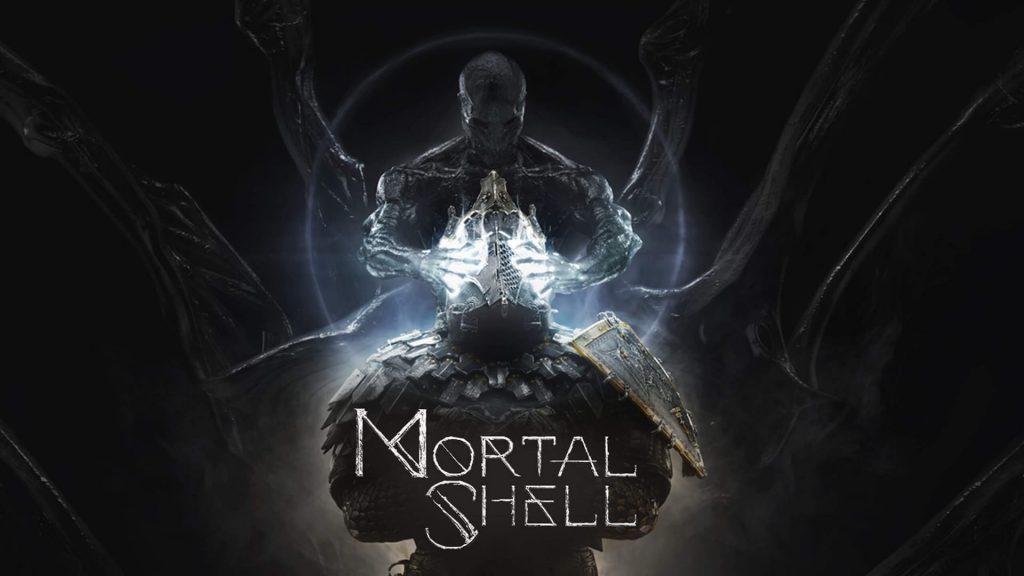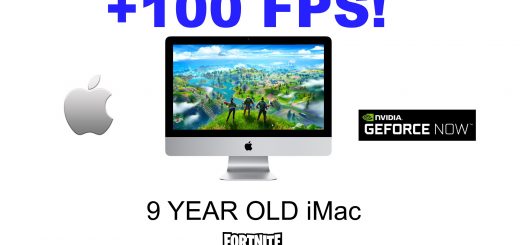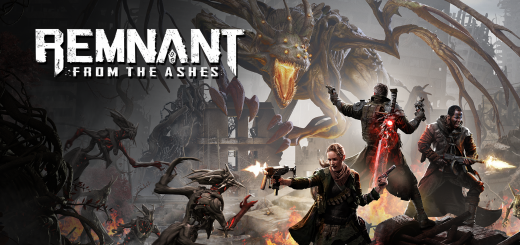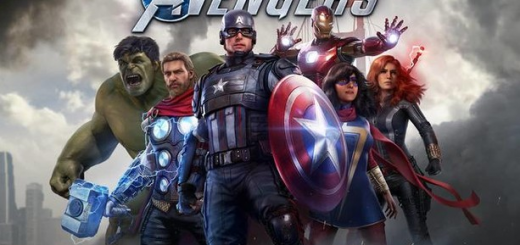FPSGuides Review Mortal Shell
AKA – Mr. TopHat Jones (@fpsguides1 and @Mr_THJ)

General Info
Game: Mortal Shell
Developer: Cold Symmetry
Release Date: August 18
Platforms: PS4, Xbox One, PC (Digital Only For Now with Physical Release October 2)
Runttime: About 12 – 16 Hours
Verdict:
FPSGuides Rating: 7.5/10
Worth The Buy at Full Price: Yes
Pros:
- Combat is pretty tight and feels good and unique across all 4 weapons
- Classes or “Shells” feel very different with own skill trees and play styles
- The unique take on blocking using the harden ability gives a twist to combat
- Each environment has its own feel and enemies making each one distinct from the other
Cons:
- Architecture/level design is repetitive with each area being confusing to navigate
- Most NPCs are somewhat forgettable with there being only a handful
- Not a lot of item variety makes sense of discovery lacking
As with all great influential properties, the “Soulsborne” series of games have spawned a number of copy cats and imitators that have had varying degrees of success. Developer Cold Symmetry has added a notable title to this list with their debut game Mortal Shell. Clearly inspired by From Software’s famous franchise, all the staples are there with unforgiving enemies and bosses, mysterious NPCs with foreboding dialogue, a bleak brooding atmosphere, and twisting winding environments to explore. At first glance, you may write off this game as another Souls-like clone with nothing new to offer especially if you are a veteran of souls-like games; however, you would be doing yourself a disservice as Mortal Shell has its own twists on the formula that keep it interesting and separate itself from the others.
Mortal Shell’s world looks familiar with its dark and gloomy forests, snow covered Gothic buildings, and cities of stone; but, it has an engaging yet brooding aura of its own. You are what is known as a Foundling, a being that looks like a naked skeleton but can harness the powers of others. As is tradition in these types of games, you do not know anything and, after a brief tutorial, are dropped into the world of Fallgrim to unravel its many mysteries. There is a home base known as Fallgrim Tower where you meet Sister Genessa, a shrine maiden of sorts, who heals you, grants you access to skills, and, if proper steps are taken, sells you items you cannot find anywhere else. You also come across a workbench used for upgrading your weapons as well as an area where you can switch out your weapons and classes or “shells” freely. When you set out to explore the world of Mortal Shell, you will traverse a handful of different environments that have their own distinct look and feel. Some of these areas are better than others however as a few are too small and similar looking making it easy to get lost. There are not many identifying landmarks which aids in getting lost and making it hard to navigate which way to go. In these different areas you will come across a decent but not large number of items to gather and a handful of NPCs to converse talk to. A rather unique twist is that when you find items, their description is unknown until that item is used. Each time an item is used the character gains familiarity with it and learns more about it. Upon reaching full familiarity with an item a special affect can be learned. An example of this is the yellow mushroom that poisons you until you reach full familiarity with it then it negates poison damage inflicted on you by enemies or the environment. However because there are so few unique items to find, the sense of discovery is brought down and not as exciting or rewarding as it could be. NPCs are very few and have interesting dialogue but its covered in mystery and is often vague leaving the player to interpret what is going on.
One of the main aspects of Mortal Shell that separates it from the others is the combat. Combat is the cornerstone of games of this nature and some falter in this area resulting in a frustrating rather than challenging and rewarding game loop, looking at you The Surge. However I am happy to report that it is well done here. It is familiar with light and heavy attacks coupled with dodge rolling, parrying at the right time, blocking (or in this case hardening), and managing your stamina. Overall, combat feels tight and fair with each weapon having it own sense of impact. The main differences between Mortal Shell’s combat and that of the Souls series and others like it is the twist of hardening your body to deflect attacks instead of blocking; adding special weapon ability attacks that need a power or resolve meter; and parrying at the right time to trigger an empowered riposte. Hardening your body into stone takes the place of traditional blocking and can be used in a variety of ways. For example, you can harden to deflect any attack to continue a combo or stagger an enemy to get a quick breather. You can also harden in the middle of attacking which can give you an advantage mixing up your timing or saving you from attacking at the wrong time; however, this ability is on a cool down so you cannot just spam it like a get out of jail free card. Resolve is another mix up in combat and is basically your power meter and determines if you can do a weapon ability attack depending on how much you have. This meter is broken up into segments or bars similar to The Surge games and can be refilled by continuously attacking; but, also drains if a bar is not filled. Special weapon ability attacks depend on how much resolve meter you have as stronger attacks need more resolve to pull off. Empowered ripostes add another layer to combat; after you successfully parry an enemy attack you can do a high damage counter attack that replenishes some of your health; however, this can only be done if you have one bar of resolve resulting in an interesting balancing act between finishing an enemy with high powered attacks or another way to heal yourself in a dire situation. As with all Souls-like games, you will die over and over again but instead of immediately restarting upon death, you get separated from your host shell and must reclaim it; if you do not you are done for.
Weapons in this game are few and far between but thankfully are significantly different from one another resulting in a vastly different feel for each. There are 4 weapons in total ranging from the slow but mighty two handed sword contrasted by the fast but much weaker hammer and chisel combo. Each weapon is acquired the same way; enter a new area and there will be a boss wielding that weapon where upon victory grants the use of that weapon. There are no weapon stats such as weight or speed so switching between them is encouraged as some may complement different play styles, shells, or better when facing certain enemy types. However, switching between weapons requires going back to the Fallgrim tower home base or finding an item for each one later in the game. Each weapon requires a unique item to unlock special moves that are unique to each weapon and deal much greater damage. These special moves are much cooler than standard attacks but , as mentioned before, require resolve to pull off. Weapon upgrades come in the form of damage outputs only, so there are no ways to change the weapon with enchantments or imbue it with elements or effects. This can be a downer as weapon variety suffers as a result but is forgivable since each one feels so different.
Progression in Mortal Shell is its main and most interesting twist that separates it from other Souls-like clones. It is not the traditional stat based system many are used to seeing in games of this type. There are no levels or stats like strength, dexterity, or intelligence to build your character around; rather, the “shells” or classes are what define progression. Each shell is an abandoned soul=less body of a fallen warrior of Fallgrim and has their own strengths, weaknesses, and skills that compliment a unique play style. Some shells focus on increasing health or stamina where others focus more on resolve. For example, Harros the Knight is a jack of all trades but a master of none as his health, stamina, and resolve are all even resulting in a more balanced play style. On the other hand, Tiel the Thief has a massive stamina pool but very limited health forcing the player to rely on evasive maneuvers and be more mindful of the number of hits that can be taken. The skills are all tied to which shell you decide to use as each one has its own unique set of passive and active moves and effects. Learning these skills results in an interesting monologue from the fallen warrior of the shell that gives insight into who they were and what happened to them in their previous life. This is a nice touch that gives a sense of age and character to the world and its lore. Skills require two forms of currency to learn them: Tar which is akin to souls or experience and Glimpses which is a more specialized currency that can be gained from items and enemies. A helpful tip is that glimpses are not shared in a pool with all shells; instead they are tied to the current shell in use at the time when you acquire them. All in all each of the 4 shells feel different from each other and encourage experimenting with each one to see which is the most enjoyable for you or which weapon suits your shell best.
Overall enemy design and variety is good for a game of this scope but could be more interesting if the placement and makeup of them were more intentional as you will see a lot of the same enemy groups together. There are the ever present fodder enemies that are just strong enough to be a distraction and pose a problem if not taken care of quickly. You have your classic archers that cower in the back and shoot from afar but make a distinguishable sound so you know when to avoid arrows. Brutes can take and dish out way more damage and usually wield powerful two handed weapons that can erase your health in a couple swings but are slower than usual. The further the game goes on the more interesting and dangerous enemies you will encounter and have to devise new strategies to defeat; but, the amount of backtracking required, especially at the beginning, makes the enemies seem all too familiar. Bosses is where the game shines and yet disappoints at the same time. There are only a handful of bosses to fight against and most are pretty standard once you get their moves down not really throwing many surprises at you; however, there a few that push back and force you to think on your feet.
Technically the game is not a burden on your machine but is not the easiest to run either, resulting in some frame drops and stuttering on occasion but nothing game breaking or overtly distracting by any means. Graphically, Mortal Shell looks pretty good with a handful of different locations that have their own distinct look that add to the dark, brooding atmosphere of the fallen ruined world as a whole. While it is not the best looking game on the market it is far from bad looking as this indie studio did all they could to show their vision.
As part of any souls like game, getting good is in its DNA; but, Mortal Shell streamlines and condenses the traditional souls experience into a smaller friendlier package with less difficulty. The result is an end product that is more accessible and will serve as a gateway for newcomers to embrace the genre. With about a 12 to 16 hour runtime and new game+ at a price of $30, it is definitely worth the buy. Although Mortal Shell has its flaws with its lack of discovery, forgettable NPCs, few boss fights, and small amount of items and weapons to choose from; the game earns a very respectable 7.5/10. Cold Symmetry’s debut game and take on the souls formula deserves applause and one that I hope puts them on the map. Whether their next game is a new IP or a second trip exploring Fallgrim and the shambled fallen worlds of Mortal Shell, I will gladly be along for the ride.





